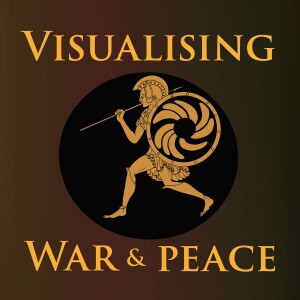
In this episode, Alice interviews journalists Margaux Benn and Noorrahman Rahmani, about their experiences of war and peace reporting in Afghanistan. Noorrahman comes from Afghanistan, and he has spent much of the last fifteen years working for the Institute for War and Peace Reporting (IWPR), first as a linguistic, then as a press monitor, and more recently as the IWPR’s Country Director in Afghanistan, managing their extensive work programmes there. Margaux is a freelance journalist who has worked for Agence-France-Press, France 24, Le Figaro and the New York Times, among other media organisations. Her career has taken her to Sudan, Kenya, the Central African Republic and Cyprus – but for the past four years she has been living and working in Afghanistan. Together, they reflect on the complex relationship between conflict and journalism, and on the challenges that journalists have faced in Afghanistan, both before and after the Taliban retook control in August 2021.
Noor discusses how the media scene in Afghanistan has changed over the past twenty years, with hundreds of radio stations and TV channels emerging, sponsored by a wide range of organisations. He also details some of the vital work that the IWPR has done in training local journalists (women and men) in developing professional networks across the country and in reaching parts of Afghanistan that foreign journalists often struggle to get to. He explains what a difference it can make to a local community to have their voices heard, drawing international attention or government aid to the region. As Noor points out, journalism has been difficult and dangerous for decades in Afghanistan, but all the more so now that the Taliban are back in power. Despite the challenges, Noor hopes that journalists on the ground will find new ways to engage with the Taliban, and he stresses the importance of peace reporting: that is, journalism that critically explores the drivers of conflict, that empowers local communities to make their voices heard, and that promotes conflict resolution between different groups.
Margaux discusses her experiences as a foreign journalist in conflict zones, and compares it with that of local journalists who often run even greater risks while struggling to make ends meet. She reflects on the different biases that different sections of the international press can have when reporting on conflicts outside their region, reminding us that international news stories are often driven more by outside perceptions of history than by what is really happening on the ground. She also discusses the different impact which long-form articles, documentaries, radio and podcasts can have, in comparison with breaking news and short-form media, and this gets her talking about the power of different kinds of storytelling. Margaux underlines the importance of contextualising conflict, not just reporting on combat itself, and she gives us a flavour of how wide-ranging 'war reporting' can be in looking at many different causes and consequences of conflict. For her, it is vital that we visualise war through individual people's stories and experiences.
Between them Noor and Margaux offer fascinating insights into the current state of media in Afghanistan and into war and peace reporting generally.
We hope you enjoy the episode! For a version of our podcast with close captions, please use this link. For more information about individuals and their projects, please visit the University of St Andrews Visualising War website.
Music composed by Jonathan Young
Sound mixing by Zofia Guert
More Episodes
 2021-12-15
2021-12-15
 2021-11-17
2021-11-17
 2021-09-01
2021-09-01
 2021-08-28
2021-08-28
Create your
podcast in
minutes
- Full-featured podcast site
- Unlimited storage and bandwidth
- Comprehensive podcast stats
- Distribute to Apple Podcasts, Spotify, and more
- Make money with your podcast
It is Free
- Privacy Policy
- Cookie Policy
- Terms of Use
- Consent Preferences
- Copyright © 2015-2024 Podbean.com





